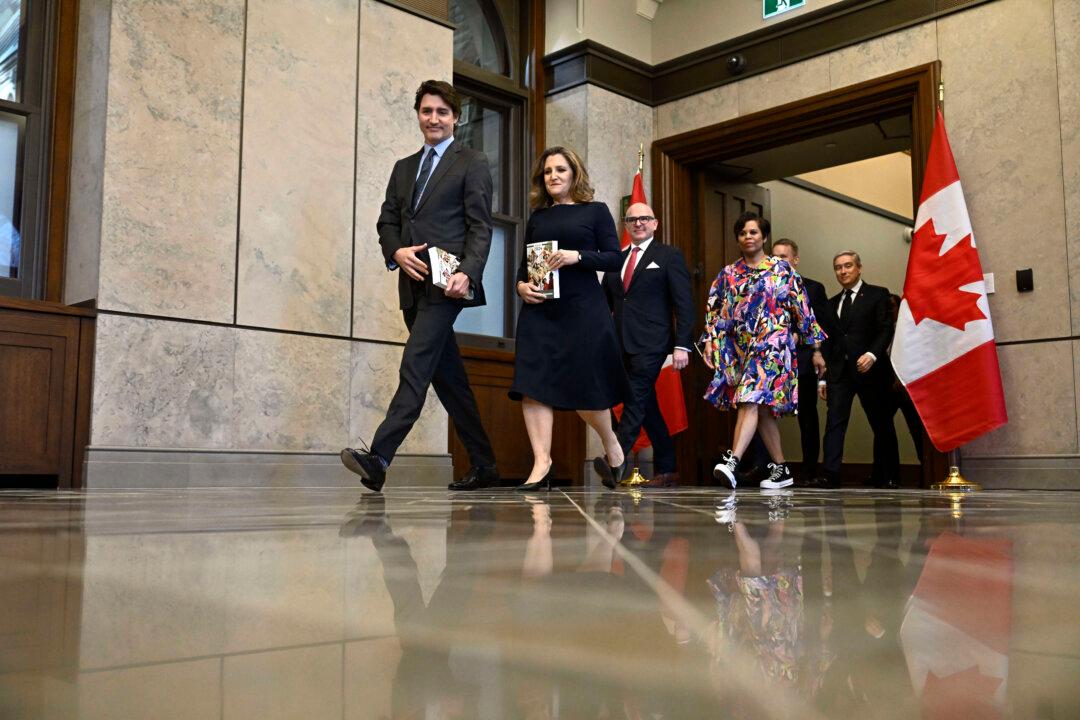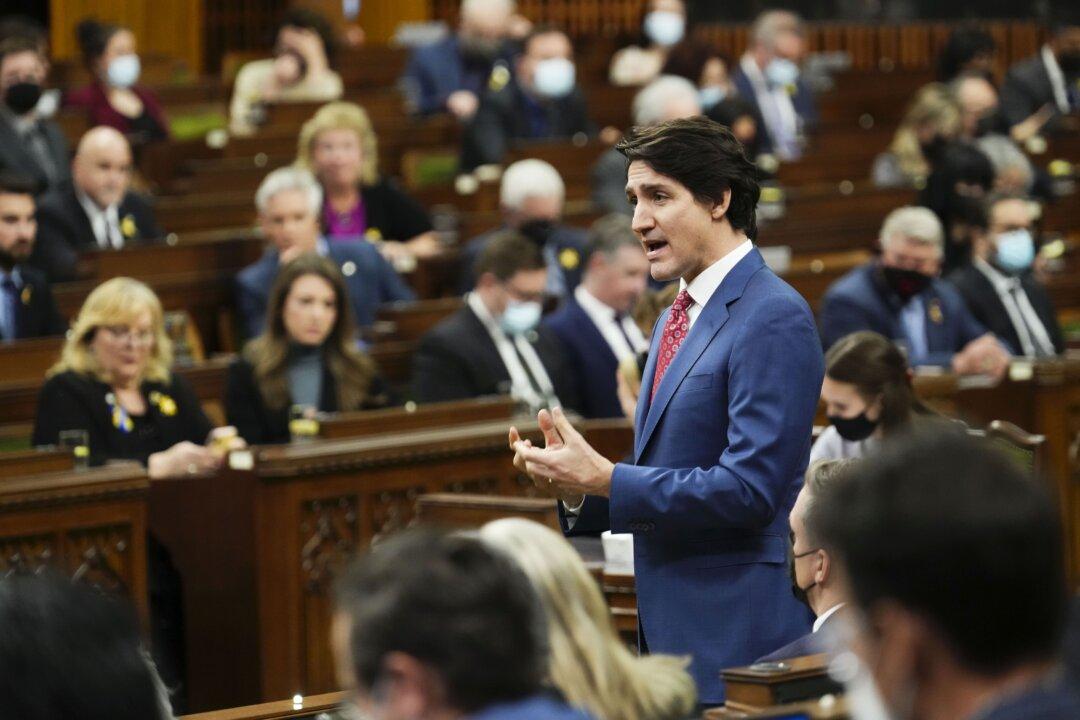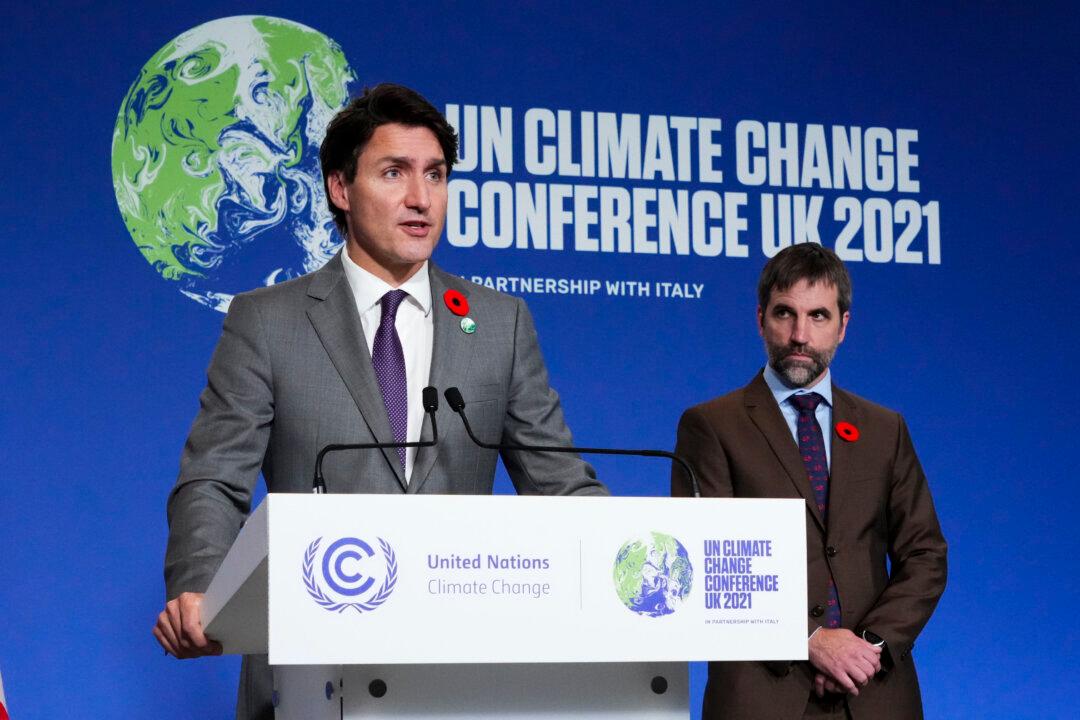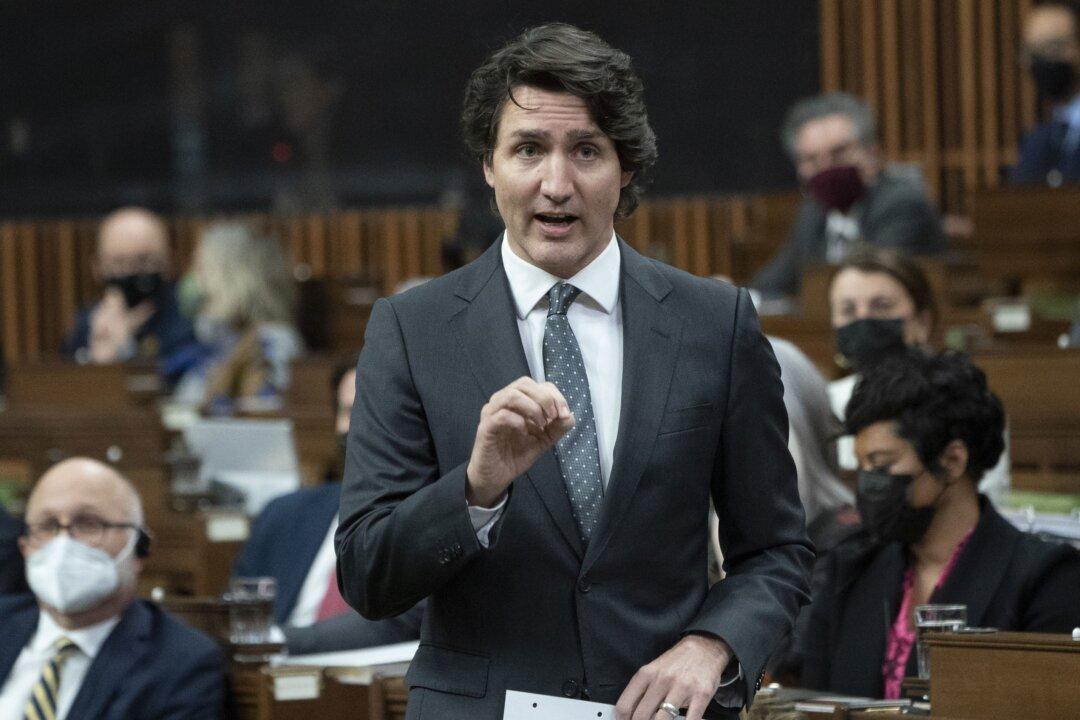Commentary
Prime Minister Justin Trudeau and his cabinet would benefit from an intervention since it appears they need professional help with their obsessional behaviour.
I offer this suggestion more in alarm than astonishment, because they are poised to do to the agricultural industry what they have been doing to the oil and gas sector—which will drive farmers out of business, increase food prices, damage the economy, exacerbate regional tensions, and reduce the ability to feed millions of hungry people during a global food emergency.
Since 2015, the Liberal government’s remorseless hostility to the resource industry has resulted in skyrocketing energy prices, relentless tax hikes, debilitating regulations, failed pipeline projects, compromised energy security, intensified Western alienation, and has crippled our ability to help Europeans beholden to Vladimir Putin.
The latest assault is a new cap on oil and gas emissions.
In fearful symmetry, and ostensibly for the same reason, Marie-Claude Bibeau, Minister of Agriculture and Agri-Food, is mandating a 30 percent emissions reduction of nitrous oxide in fertilizers.
According to the Western Canadian Wheat Growers Association, insisting on an absolute rather than an intensity-based reduction would diminish canola and wheat revenues by $840 million annually, and cut profits for a farmer with 2,000 acres by about $40,000.
It would also render unachievable the feds’ goal to expand Canadian agriculture exports from $55 billion in 2015 to over $85 billion by 2025. That would be very unfortunate since as many as 323 million people already are, or are at risk of, suffering from acute food insecurity, according to the World Food Program.
The major problem for importers (but not for Canadian farmers) is that global food prices were 23 percent higher this May than last year. Clearly, the mandated reduction in fertilizer use runs counter to the United Nations’ goal of eliminating world hunger by 2030.
Trudeau apparently believes ignoring that calamity, and the European energy crisis, is justified because of the existential threat of global warming, even though Canada can do nothing measurable about it by reducing domestic emissions, which are only 1.5 percent of the global total.
His blinding zealotry does not allow for a balanced discussion about more effective and less costly alternatives to reducing emissions, including investment in clean technology and the development of nuclear energy.
Moreover, it gives short shrift to the best strategy to protect Canadians from the effects of global warming and extreme weather events: a coordinated federal, provincial, and municipal mitigation plan.
Trudeau’s fixation has become an obsession.
His preoccupation with a climate emergency has morphed into a moral, quasi-religious imperative that tolerates no dissent and justifies policies, irrespective of their harm to Canadians and people around the world. Perhaps for political consumption, the only permissible evidence of success is domestic greenhouse gas (GHG) emissions reductions rather than the impact on net global emissions, which is the relevant measurement.
Furthermore, it ignores a fundamental shift in thinking occurring in Europe (and elsewhere) where they are becoming desperate for fossil fuels, including coal, in order to avoid blackouts and moderate soaring energy prices. They are also realizing that intermittent wind and solar cannot alone save the day, given the current limitations of storage technology.
Finally, net zero is very unlikely to be achieved in Canada or globally in the time frames set out, and every knowledgeable government knows that—after all they missed each target they ever set—but will not publicly admit the incontrovertible reality.
People react bitterly when their livelihoods are deliberately threatened by an overweening government. After all, why should they bear a disproportionate burden when politicians, whose personal lifestyles hypocritically contradict their censoriousness, are personally unaffected by the narrow call to sacrifice?
The recent tractor and truck convoys in Holland (some sporting Canadian flags) speak to the desperation of Dutch farmers pushed to the brink by environmental scolds.
It is no stretch to predict that electorates in developed countries, especially the working class and the poor, would not forgive governments for policies that deliberately subject them to rampaging inflation, grinding taxes, and electricity blackouts.
Citizens in developing countries, like Sri Lanka, overthrow political leaders blamed for widespread hunger and unaffordable cooking gas and fuel, and for whom talk about renewable energy is understandably irrelevant.
Reality bites, whatever delusions the elites may harbour.
The International Renewable Energy Agency puts the cost of climate change actions at $131 trillion by 2050. It is doubtful that advanced economies are ready to pay the bulk of that staggering sum, or that autocracies or developing economies care about the moral preening of Western democracies.
For Canada, the number is about $2 trillion over 30 years, roughly the size of our GDP, or $60-$80 billion a year, according to RBC. That massive expense would require a major sacrifice in social services and/or brutal tax hikes.
At some point, green policies become too damaging to society and to the individuals they are allegedly designed to save. That time is now, although all indications are our government didn’t get the memo.





